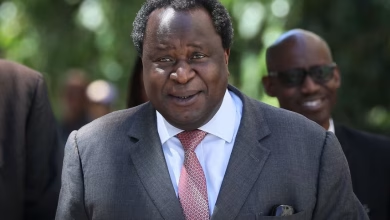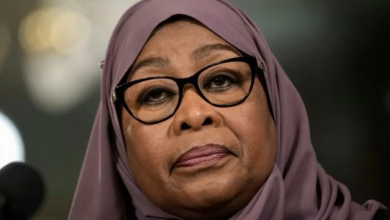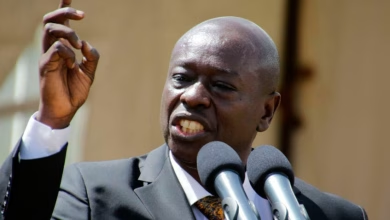Cameroon Reassures on President Biya’s Health Amid Speculation

- Cameroon's President Biya absent from public view since Sept 8.
- Officials claim Biya in "excellent" health, working from Geneva.
- Biya criticized for prolonged foreign stays, especially in Switzerland.
- 42-year rule marked by controversy and democratic reversals.
Cameroon’s President Paul Biya, 91, has been at the center of speculation regarding his health due to his prolonged public absence since September 8. However, senior officials have stepped in to quell the rumors, insisting that Biya is in “excellent” health.
The speculation began when Biya missed the United Nations General Assembly in New York, sparking concerns about his well-being. In response, Samuel Mvondo Ayolo, director of Cameroon’s civil cabinet, released a statement confirming that Biya continues to carry out his duties from Geneva, Switzerland.
Ayolo condemned “mischievous individuals” spreading false information about Biya’s health and eventual death. This reassurance comes after opposition parties and civil society groups demanded transparency on Biya’s health and whereabouts.
Biya’s extended stays abroad, particularly in Switzerland, have long been criticized. According to the Organized Crime and Corruption Reporting Project (OCCRP), Biya has spent the equivalent of four-and-a-half years on overseas trips since taking power in 1982.
The Intercontinental Hotel in Geneva is reportedly Biya’s preferred destination. Government spokesperson René Sadi has also dismissed reports of Biya’s poor health as “pure fantasy” and announced that the president will return to Cameroon “in the next few days.”
After 42 years in power, Biya is one of Africa’s longest-serving leaders. During his tenure, Cameroon transitioned from a one-party state to multi-party politics. However, his rule has been marred by endemic corruption and the reversal of democratic gains.
In 2008, presidential term limits were abolished, allowing Biya to maintain his grip on power. Additionally, Cameroon faces an ongoing secessionist war in the western region, resulting in over 6,000 deaths.
Biya’s leadership has been marked by controversy, and his health has been a recurring concern. Despite this, he remains a dominant figure in Cameroonian politics.
The government’s reassurance about Biya’s health aims to stabilize the political climate. However, only time will tell how this situation unfolds and its implications for Cameroon’s future.






